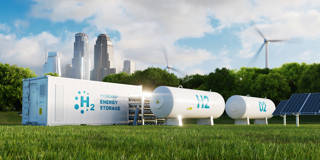Werner Hoyer
Says More…
This week in Say More, PS talks with Werner Hoyer, President of the European Investment Bank.
Project Syndicate: In April, you and Josep Borrell argued that the Ukraine war should accelerate progress on decarbonization, which is now a “strategic imperative.” But the war is also complicating decarbonization efforts. The European Commission’s action plan for ending dependency on Russian energy, REPowerEU, includes billions of euros in investment to import liquefied natural gas (LNG) and pipeline gas. And critics warn that an incipient wave of fossil-fuel infrastructure projects could have a lock-in effect. What can be done to prevent a short-term embrace of alternative fossil-fuel sources from turning into long-term dependency?
Werner Hoyer: I think we risk conflating two different issues here. Yes, this horrible war and the sudden reduction of Russian gas supplies mean that emergency measures are needed, in order to ensure that our lights don’t go out, that our houses stay warm during winter, and that we avert an economic crisis. New infrastructure projects to diversify Europe’s gas supplies are unavoidable.
But while such projects will be necessary, they will be only a stopgap. We should not lose sight of the big picture: our dependency on fossil fuels, including gas, is the cause of our woes, and perpetuating it is not a solution. That is why REPowerEU, which you mention, foresees some €200 billion ($201 billion) in additional investments, mostly in renewable energies, energy efficiency, and power grids. In comparison, it anticipates that only €10 billion in investment in additional gas infrastructure will be needed to compensate fully for the loss of Russian gas imports. As you can see, the difference is a matter of orders of magnitude.
